Written in May 2020
10 years ago, my brother took his own life.

At my brother’s wake, I vividly remember my auntie saying to me ‘Normally, when people are grieving for someone who’s died suddenly, it takes about 2 years to get over it.’ Ok, I thought to myself, 2 years, that’s not so bad.
She continued, ‘When people are grieving suicide, it usually takes about 4 years for them to really move past it.’
‘Well, fuck, that’s the rest of the twenties basically written off then. Great!’ I thought to myself.
Selfish, right?
Unfortunately for me, her prophetic words were true, although by 2014, I had other problems adding to the situation. Lonely in a big city alone. Fledgling teaching career going nowhere fast. PTSD and anxiety disorder. Fucked up love life with someone that was just as depressed as Peter had been. Spiritual crisis, as God appeared to be MIA regarding all the former issues. The result: breakdown.
There was a small blade next to my bed, for treating verrucas, that dared me to use it for more nefarious purposes every evening when I climbed into bed. I didn’t. I couldn’t bare the thought of transferring the pain I felt to anyone else, and so I lived, feeling like my soul was rotting inside me.
Others who had lost loved ones said things like ‘time heals’, which initially is super unhelpful, but does prove to be somewhat true.

I think it is not so much the passage of time itself that heals, but what you choose to do with that time.

A tree will gradually grow bark over where a branch has been taken off, but there will always be a scar there. That’s how you get knots in wood. So too, we have a psychological immune system that will plaster over emotional wounds with the salve of explanations and rationalisations, platitudes and prayers. Sometimes that makes for healing, sometimes it’s just a band-aid, and we need further help. The knots add character and beauty to the wood, and to us too.

There’s something taboo about grief that most people are not really willing to admit: Grief doesn’t end. You don’t get over it. There is no moving on, as if the loss stays in the past and you migrate unaffected into the future. It is part of you. It springs up when you most and least expect it – at times like birthdays, death-versaries, Christmas, listening to a particular song, talking to a particular person, eating a particular food, looking at particular photos from a particular trip.

The crux of my problem is this:
I was supposed to have a brother named Peter for my whole life, so every day of my life that he doesn’t exist, it is a renewed tragedy all over again.
I am aware that that’s not a ‘helpful’ way to view it, but… is it not honest?

Sure, there are other explanations that I could feed myself like:
‘Depression was like a cancer of the mind for him’,
‘It was a case of when, and not if for him.’
‘If he was still alive, he would still be miserable.’
‘At least he’s no longer suffering’
‘Everyone has to die sometime’
‘Life is for the living, you’re still alive, you’ve got to live it.’
The way that people, professionals included, view grief like the flu – something acute and terrible, that you recover from – is unhelpful, untrue and robs the bereaved of the support they need to construct a new paradigm of what life looks like for them without their loved one.

Everyone’s grief journey is different. When you are grieving, people tell you their stories of grief, and I took what resonated with me, and discarded the rest. Some people avoid thinking about it, and move on. Some people create annual traditions. Some cry. Some pretend it never happened. Some choose to numb from a selection of drink, drugs, pills, denial, over-work, over-exercise, over-indulgence, isolation, etc. Some find love. Some just want sex. Some find a hobby. Some can’t cope. Some piece a whole new life together. Some just stop really living.

I dabbled in most of those coping mechanisms. I tried hiding myself in a completely all-consuming job, which did genuinely help… Until you’re trying to balance an all-consuming job and all-consuming grief. There was a fair amount of alcohol for a while there, and meaningless sex certainly was a fun coping strategy. You hide in your extremes when you’re grieving. Boy-crazy before? Now insatiable need for attention. Introverted before? Likely super-introverted now. Liked partying and drinking before? Now, moreover.
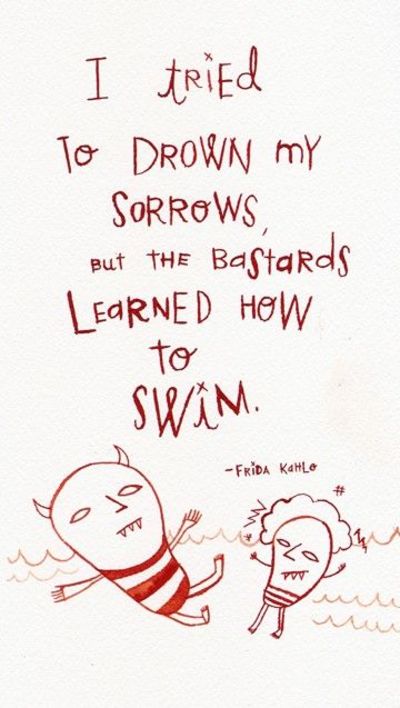
At some point, they’re no longer coping strategies – this is your new life now. If you’re not careful, tragedy can come to define you. Conversely, its inhuman to entirely forget those we loved and lost.
So how do you remember, without losing yourself in the memories?

One way is to create a ritual or a tradition. A grief counsellor I went to see said she buys flowers for herself, on the anniversary of her mum’s death each year.
Another is allow yourself to be sad. I heard of a comedian who blocks off a week in his calendar each year to commemorate when his wife died. He doesn’t do any gigs during that time. I decided I liked that idea, and so I take a couple of days in June each year, to just let myself feel really sad if I want to. I indulge in a hibernation where I have no desire to participate in life, I write some moody poetry and mooch around the house a bit, watch some tear-jerker films, look at photos of Peter, have a cry, sleep in, bake, and then it passes. A little bit diva-ish, but it works for me.
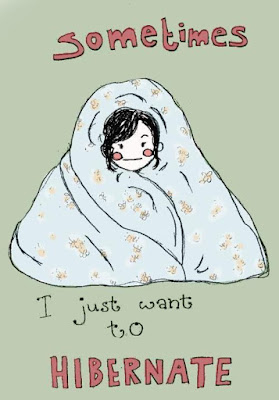
After I’ve been authentically sad, it is much easier to be authentically happy.

For me, the more I shun, deny or talk myself out of my feelings, generally the more they manifest in uglier, more fucked up ways later on.
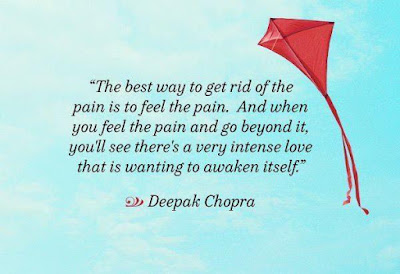
Trying to force oneself to prematurely ‘get over it’ – as if that’s even a thing – dishonours the dead and the living in one foul swoop. The bereaved person isn’t being true to themselves, and the dead are forgotten.
One counsellor talked about grief like a briefcase that you carry around, that gradually feels lighter, shrinks, and takes up less of your head-space as time goes by. It’s not something that you have closure on, it’s something that is added to the baggage of your life. It will always be there, a part of you, and you figure out how to carry it.
For me, a good dose of melancholic recollection seems to be part of the carrying. There’s a season each year. It starts a few days before Peter’s birthday on March 15 – a forlorn fog settles over me, and I find myself more introspective than usual, floating in and out of memories, feelings, with the what-ifs and what-could-have-beens, more often than I normally would.
He would’ve been 31 this year. His friends have girlfriends, wives, kids, careers, houses, interests, opinions, humour, life.
I wonder what his life would’ve looked like now?
I make a meal to honour him, celebrate his would-be birthday. His favourite: macaroni cheese and coleslaw. Not for his benefit, but mine. Not because I’m dwelling in the past, but because the memories of him are part my present. They’re part of my story, my future. It feels like dining with an old friend. It is comforting to honour him, to remember that he was.

In NZ, one might write it off as Seasonal Affected Disorder, but it is something more than that. It is spring in Ireland, a season of hope and new beginnings. The sun has been shining for weeks. Yet, I find myself pondering the weeks leading up to Peter’s death, analysing them like a CSI detective, looking for hints, clues, moments that could have gone differently, that could’ve changed the course of his history.
Many have suggested that I need to move on, or get over it. I have learned that, for me at least, that’s not how grief – particularly grief from suicide – works.
Some think I spend an unhealthy amount of time wallowing in it. Perhaps I do. Even though there are tears, there’s something heart-warming in remembering. I imagine it’s hell from the outside looking in – it’s certainly not heaven from the inside – but it feels like the only real road available to walk.

I would go so far as to say my grief serves me. There’s a depth that you sink to in grief that makes the heights of joy higher by comparison. There’s something invigorating about feeling things so thoroughly. The abundance of life you have is put into sharp contrast by death. Each sunset is savoured, each memory cherished, and there’s more intention around building meaningful relationships and filling your time with purpose.
There’s less tolerance for the bullshit of life.
I do not feel entitled to happiness, but rather deeply privileged to have a taste of it, even if it is only for now. I know just how miserable it can be to feel alienated from happiness. I will never take it for granted again. New memories are created with a deeper appreciation for those present, and a silent sigh of ‘I wish he could’ve been here’.

There is a beautiful sadness in the depths of despair, and it does make you appreciate life that much more.
I think I’ve picked up and moved on with my life as much as one can, after the bottom falling out of one’s life in such a spectacular way. I have a career, I have friends, I have a great husband, I am having my own adventures. I have a blog where my awesome friends and husband read my about adventures – inner world and outer world.
I have developed a life philosophy of ruthless self-care, because I know the demons that lurk within me, and how easily they are stirred if exercise, sleep, good food, or social activities are missed. Siblings of suicide victims are the most vulnerable group for following suit.
Building a new life doesn’t erase grief. There is no end point to it. It lingers. And during this season of remembrance, the memories invite my validation, time and attention.

My first experience of untimely death was when a classmate, age 19, passed away. There were two twins, the life of the party, brothers and best friends. They crashed on the way back from a party. One twin was driving. The other, in the front passenger seat, passed away.
It was tragic, and particularly with someone so young and so full of life. They’d lost not only what was, but what have could been, and so the mourning is two-fold.
I wrote a poem to the brother that was the driver, (because that is how I deal with all of life’s problems) and it talked about how devastating it was, but how he still had life. So even though it was shit without his brother, he still have to try and live, and live well, do him proud, because he was now living for both of them.
Is there life after death?
Anything left after
Their last breath?
Mesmerised
Hypnotised
Dazed, crazed
Dealing with feelings
You didn’t know
You could feel
How could reality
Seem so surreal?
There’s now nothing
To separate fiction
From non
How does the rest of the world
Keep going on?
Something’s missing
Something’s gone
Irreplaceable, irretrievable
And with that something,
Some of you
Was lost too.
The Earth is still spinning
The moon waxes and wanes
So does your burgeoning pain
The sun continues to rise
Each morning, as you do
Even though you don’t want to
On the outside
Everything remains the same
But inside
You feel disconnected
And content to stay that way
Day after day
Unnumbing would be
Coming to grips with,
Accept what you
Want to reject
You expect
That pinch to wake you
From this nightmare
You fear to feel again
You can’t bear the strain
You’re under from the pain
It’s easier
To deny, to defy
Than to identify
“It’ll be soon,
It won’t be long,
Til I can breathe again,
Til the weight
On my chest is gone
”You tell yourself
You have to have hope
You have to believe
Without it,
There would be
No reprieve
From the grief.
Yes, he is gone
And yes, it seems wrong-
His stay wasn’t very long –
But you must hold on
There is still life after death,
You still have breath
Make the most
Of what you have left!
Life lived goes fast
And you never know
Which day is going to
Be your last.
What strange foreshadowing the story of my life has.

Any loss is devastating, but suicide is different. When you lose someone to suicide, it is an absolute tragedy. You also mourn for the death, the loss of life, and the loss of hope itself. They couldn’t see anything worth living for, despite how many people loved them.
Most people cling to life with all they have, and try their best to make the best out of their meagre existence. Suicide is unnatural – it flies in the face of everything that we’re taught to believe about life – that life is precious and beautiful and worthwhile.
When you lose someone to suicide, it is soul-destroying, because the perpetrator was also the victim. You’re not supposed to speak ill of the dead, but I was seethingly mad. How could he do that to himself? To us?
I was also heart broken because it seemed so preventable. It was, and it wasn’t. Just because he may have been prevented, doesn’t necessarily mean he was willing or able to put in the work to overcome the big black dog of depression that haunted him.
There’s a big gap between being alive and living.
Since June 3, 2010, one of the things I had to learn was my brain is not the trustworthy friend I thought it was, and I have a black dog of my own.
Most people have two competing voices, and one is a severe inner critic, a punisher, an arrogant need-to-be-right-at-all-costs dickhead. Your Bitch. The one that rubs salts in the wounds of rejection, chastises you for being fat whilst demanding you to eat a donut, and reminds you that even though you’re happy now, it’s you, so it’s probably not going to last.
That voice, though it sounds true, is the voice of fear, insecurity, self-doubt, self-sabotage and defeat. Sometimes this voice is useful – it can be the one that reminds me that my life is not a movie, and things do not entirely revolve around me – but usually it’s just lies.
For me, losing someone to suicide was the equivalent of taking the red pill in the Matrix, the one that opened up another dimension to another world in two major ways:
One – it meant that if shit ever got really, really hard or really, really dire, then my inner Bitch now had an exit strategy to advocate.
Two – my inner Bitch now had a compelling justification – one of the smartest people that you know thought this was a good way out. He might be onto something, perhaps it’s a life-hack?
It is the mental equivalent of media stories giving the Climate Change deniers a line or two in their story, as if their denial was relevant, useful, part of the story, or a valid perspective. Divergence of thought certainly has a place, but sometimes actually it’s just unhelpful when 99.6% of other scientists agree on the science.
One of the most profound counselling sessions I’ve ever had was with a beautiful human in Auckland, and she simply spelled it out:
You know you don’t have to trust every thought that comes into your head right? Your brain can lie to you. Those things swirling around in there, they’re just thoughts; They’re not necessarily true.
Then there’s that other voice, the quietly hopeful one, the voice of gratitude, common sense, optimism, joy, the one that delights in people, and finds the good in even the most annoying of folks, the one that believes in things – yourself, the future, God, aliens – the voice that is silly, nay giddy, in a fun, and sometimes salacious way.
The voice that believes that despite everything going wrong, it will all be OK, and you are more than a little bit pretty, and that photo you took the other day was stunning, you do deserve that job, and they are, in fact, missing out, and that you are actually quite lovely and beautiful, and that person would indeed be lucky to have you.
Now, I don’t know about you, but the voices in my head are not limited to two, but for the sake of this post, that is all we’ll be exploring. (Fun fact: Mine actually have slightly different sounding voices, and this helps in the differentiation.)
Normally, I’ve trained myself to listen to what Mandi Lynn calls ‘your inner muse’, the voice that speaks positivity and light into your life. If there is a situation where I have more than one voice telling me more than one thing, I privilege my Muse, actively choosing that softer, optimistic voice, rather than the shrill banshee cry of the inner critic, or the Bitch.
Normally, I have a default to sunny optimism, with a healthy balance of devil’s advocate.
Normally, I believe in myself.
Normally, I am working on being the best version of myself.
Normally, I am proud of my achievements.
But come March 15 each year, there is a grey cloud that passes in front of the sunny optimism of my life.
The storm softens each year, but it’s there. Like a well-rehearsed play, my mind relives each moment from Peter’s 21st birthday, and him coming along in a sleep-pill-induced hungover-like state, to the time where I had to call the cops on him because he was throwing objects at his girlfriend.
Accompanying him to court hearings, to lying on his bed and creating a plan for him to study sound engineering in Invercargill. Me breaking my little toe bone and Peter taking me to the hospital. Watching movies together in his room, to fighting with him about him needing to do more than nothing around the house.
Peter specially putting my crutches in our shared car before me driving to the airport, but me thinking I’d forgotten them and not even thinking to look, and heading off to hobble around Christchurch without them. The day that we discussed the Z machine, and a bunch of other science things that blew my little mind. Planning to go to a movie the following night, only hours prior.
My mind recalls my naive glee at the little wins, like seeing him leave his room, seeing him smile, seeing him make himself food more complicated than Weetbix. Helping him practise driving.
Trying to convince him that even if he didn’t feel loved, he was loved.
And then all of that changing the night of June 2/3 2010, with Steven coming into my room, as white as a ghost, saying ‘I just found Peter…’ and that was all he needed to say, because I knew the rest of the sentence. The spectre of suicide had hung over our family since the turn of the century, and finally the question of ‘When?’ had been answered.
The battle changed. Instead of trying to force myself to go into Peter’s coven of a room, check on him, and see if he was alright, if he was awake, if he needed to get meds or see a doctor, try to be positive and upbeat in the face of depression and desolation, I had a new battle.
Trying to hold back tears when someone asked me if I’m OK, holding it together long enough to survive a work day, finding the nearest bathroom so I can go and have a cry alone, exhaustion, fury, desolation. Grappling with the internal moan of why? Learning to be OK with not being OK.
Sometimes, even now, a decade later, those feelings resurface.

I struggle to reconcile my trying to find meaning and joy living in a world where my brother thought it was so horrific, he had to take his own life. What kind of monster would I be, if I was fully OK with that?
What kind of mental gymnastics would I have to perform to be able to say ‘You know what, he saw the world as hollow, without meaning, hope, promise of a future worth living, and so painful that taking his own life was his best option – an easier option than trying to living in the tension of the pain – but I don’t see any of that. He was crazy, and I’m fine.’ is not something I can do. I understood where he was coming from.
The people that can do that are the ones I worry about.

There is a lot of suffering, pain, and difficulty and it does take a lot of effort to get one’s shit together, and make something worthwhile out of one’s life. Ultimately, one could make a very good argument for things being largely pointless, and all life being suffering.
But he also wasn’t entirely right.
There is joy, and cause for hope, and humans do create amazing things, and make the world a better place. We live in the most literate, the wealthiest, healthiest era in human history. We live in an age of ridiculous privilege where education, medicine, clean water, hygiene, food and beauty therapists are freely available (though maybe not right this second).
Technology, globalisation and the internet have created a wealth of information, trade, opportunities, entertainment and a bunch of other things. Our houses have heating, our cameras have filters to cast us in our best light, and we have access to the entirety of the world’s knowledge and information at the click of a button. Infant mortality has never been this low, and life expectancy continues to increase. Some illnesses have been entirely eradicated thanks to vaccines, and there are countless new creations that make lives better being invented every day.
There is both. There is incredible suffering, and incredible joy. Simultaneously.
What you choose to focus on is key, but denying either element is foolish.

He couldn’t see the second part. And that is the real tragedy – he couldn’t imagine joy for himself.
But I could. I could see it for him. That is the part that breaks my heart.
That will never get less sad.
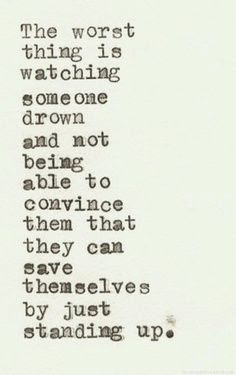
If the choice in life is to live, knowing there will be pain, sadness, heartbreak, and seek the joy that is available, then I have made mine.
I have dragged myself back from the brink over the last decade, with the help of a lot of amazing people. The crevasses of one’s mind, replete with darkness and demons, that your mind goes when its sole focus is trying to grapple with why someone would take their own life, are daunting. My brain became a playground for the unsolvable mystery of Peter’s suicide. It was rife with unanswerable questions and morbid musings. When all you’re thinking about is death, suicide, and how someone could do that to themselves, you do find answers, and their answers spur questions in you.
It was like a door opened in my mind, that I can no longer close.
The Bitch is trying to convince me that people are sick of hearing this story.
Maybe people do agree with my Bitch, maybe people don’t. If they do, then clearly they do not understand. How blessed they are in their ignorance. I wouldn’t wish the understanding of this on anyone.

One of the lessons I learned from grief is if you give yourself permission to feel it, it is over more quickly. Much like catching waves, if the ride is easier if you lie back and float, rather than struggle.
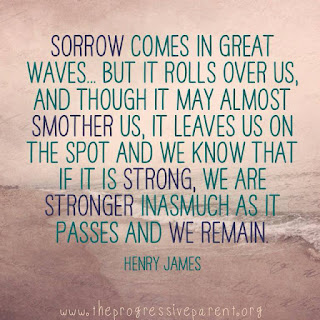
Every now and then, I’ll feel the need to have a cry. If I give myself permission to cry, then I won’t even need to actually cry half the time. The act of giving myself permission to be sad is often enough. There is nothing quite as cathartic as a soul-wrenching, heaving, shaking, sobbing cry though – I ride that wave if possible – because the clear crispness of my inner air afterwards is like the clean fragrant air after a tropical storm.
And so another March 15 rolls around, and I am crying at things that I wouldn’t normally cry about, and having strange vivid dreams, and reliving the lead up, as my mind screens the memories, playing them back in full Technicolor. Classic symptoms of complex grief and PTSD, so I’m told.
I used to dread this time of year. I knew there was little to no getting away from the voice in my head going ‘Do you remember on this day where you had to get your brother arrested because he was assaulting his girlfriend?’ Yes brain, I do, thanks for that.
Much like the Facebook memories section, my mind remembers anniversaries of things with annoying accuracy. ‘Do you remember that song that’s playing right now? Remember that time that that played at Peter’s 21st video tribute that Brendon made?’ Yes, brain, I do, thanks for that.
For awhile, I tried to suppress it, because people, directly or not, suggested that I should be ‘over it’ by now, and that I need to ‘move on with my life’.

I can tell people say this because it hurts them to see me in pain. I’m sure watching grief unfold for someone you love is horrific. If it is uncomfortable for the viewer, think of what it’s like for the bereaved. That doesn’t mean it needs to be circumvented: it serves a purpose.
As people told me it would, the intensity of grief did fade with time to a being like a warm bath of memories, rather than a boiling pot that I would get burned by every time I dived in.
Now, all these years later, I have come to enjoy the arrival of my grey clouds. The cumulus of grief fills to bursting and eventually tears rain forth, and it is a relief to still feel. There is a melancholy beauty in the overcast sky I’ve always loved. I think it’s a coping strategy of growing up in Wellington, because of all the grey weather. I adore the moody grey of clouds on still, overcast mornings. And so I’ve come to love the grey cloud times of life as well – even in the grey there is beauty.

The clouds means remembering. The cloud gives me permission to be sad. The cloud validates that my life didn’t turn out quite as I had expected, and that actually it is OK to be sad about that for a little while. The cloud gives me a chance to be thankful that I knew such an awesome person. Like D-Day or ANZAC day, it is a season where I remember what I have lost, and the toll it took.

And in the same way that I doubt that we’ll be getting rid of ANZAC day any time soon, I suspect that the cloud cover in my life is designed to be a period of reflection, that remembering is a gift.
I could ignore it and busy myself in shallow fun-seeking, but having considered this idea I have come to the conclusion that I simply don’t want to. The only place Peter still exists is in my memory. There’s no gravestone, there’s no public memorial plaque; there’s only family, photos, and memories. When I can no longer recall his smile or remember his witty quips, then he dies completely.
And so I embrace the clouds. My annual appointment with an apparition. I miss my little brother, and while tears stream down my face as I’m writing this, I’m grieving not only for his death, but for his loss of life before he died. Depression robbed him of so much more than breath before the end. He had a cancer of the mind, that shuttered his sense and jaded his judgement. I grieve our family, and the pain that his death caused, the ripples that that has had. I grieve what Peter’s life could have been, and the person he could’ve become. I grieve not having Peter at my wedding – though he’d likely have been the only person not dressed up. The more of our lives he misses, the more that grief grows.
Then I recall a conversation with him I had only a few weeks before he died, reflecting on how he’d dropped out of study the year before, and how he feared others saw him as a disappointment, a failure. ‘They might well be disappointed – they’re not the only ones! I had dreams for myself too, you know. They’re not the only ones who are devastated. Do you think this is how I wanted my life to be?’
And my heart breaks all over again.

So I guess this is largely a choice at this point. I have long since made peace with the idea that grief is the price we pay for love. Grief is the cost of remembering. Brené Brown speaks about vulnerability, and how if we numb some emotions, we numb both extremes. If I am to continue being the passionate, curious, dynamic, loving human that I am, then this seems to me just a necessary side effect.

Don’t get me wrong: it’s not enjoyable.
To remember is to live with the ache.
But who would I be if I forgot?
Could I forget, even if I wanted to?
That is a person who I don’t even want to know.
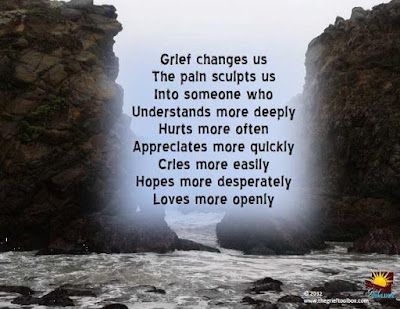
Come June 5, the cloud passes as quickly as it came, and I am back to normal. The new normal. After you’ve lost someone like that there is no going back.
You’ve turned a corner on the road of life, and gone cross country for awhile – perhaps up a hill, perhaps off a cliff, perhaps stuck in a ditch for a time – but you never get back to the previous section of road. Even if you did, the ride has changed you, and you would see, feel, experience the road with entirely new appreciation for the scenery and the journey.
To everything there is a season. My season of grey clouds is here for now, and the weather is particularly stormy this year.

With dark stormy clouds come rain, and sometimes a rainbow. The rain passes and everything is cleansed, a little clearer, a little brighter than it was before.

The act of writing a book about all of this is obviously compounding this at the moment. I’m hoping once my brain has ticked off the need to record Peter’s existence somewhere outside of itself, it will no longer feel the need to have the continuous reel of memories playing so often.

There is a bitter-sweet loveliness in remembering him though. The longer it is since his death, the more my memory focuses on the good times, the fun we had, instead of the daily slog of living with someone with a chronic mental illness. Remembering the good times reminds me that our childhood really was that fun and he really was in fact that awesome.
I wish we had more time to make memories.
I wish I could have saved him from himself.
We didn’t. I couldn’t. I tried.
And so in the absence of him, I plant memories of what was, what could have been.
It is a sorry supplement, but what is the alternative?

Now, it is not so much his death that I mourn, but the loss of his life. That will never get less sad.

So you dear reader, after this melancholy marathon, if you have made it this far, you might be wondering what you could possibly do to help?
In all honesty, very small things.

The not-doing is more helpful. Don’t put a timeline on people’s grief. Don’t say you know how they feel. Don’t expect them to be over it in a year, in 5 years, or even 10. This is a permanent fixture of who they are now.
Do listen. Let them talk about their loved one.
Do show you care.
Do show up.
Do stay in touch.
Do accept whatever emotions happen to be coming out on any given day.
I cannot underscore how beautiful a gift it is to just be present with someone who is not Okay.
If it is you who has lost something or someone, then be kind to yourself. Loss sucks. Give yourself the time and the space to acknowledge what has been lost. Learn to be OK with (still) not being OK.
In researching this post, I’ve had to learn to forgive myself for still grieving this. How delightfully liberating!
Thank you for reading, for listening, for caring and for letting me tell you my story. It hasn’t been an easy one, I’ll concede, but there have been lots of learnings and happy chapters along the way, and hopefully many more still to come.

Extra:
Who Gets in Your Bucket?
By Doug Manning
The best way I know to picture how we receive help from others in grief is to imagine you are holding a bucket. The size and colour doesn’t matter. The bucket represents the feelings bottled up inside of you when you are in pain.
If you have suffered a loss, hold the bucket and think through how you feel right now. If you are reading this to learn more about helping others, then imagine what would be in your bucket if a loved one had died very recently.
What is in your bucket? Fear. Will I survive? What will happen to me now? Who will care for me? Who will be with me when I need someone near? Most likely your bucket is almost full just from the fear. But there is also:
Pain. It is amazing how much physical pain there is in grief. Your chest hurts, and you can’t breathe. Sometimes the pain is so intense your body refuses to even move. There is enough pain to fill the bucket all by itself.
Sorrow. There is devastating sadness; overwhelming sorrow. A gaping hole has been bitten out of your heart and it bleeds inside your very soul. You cry buckets of tears and then cry some more.
Loneliness. There is no lonely like that felt when you are in a room full of people and totally alone at the same time. Loneliness alone can fill any bucket ever made.
I could go on, but that’s enough to get the idea across, and hopefully get you started thinking through your own list. What is in your bucket?
Now picture someone like me approaching you and your bucket. I also have a bucket. My bucket is full of explanations. I am armed and ready to explain why your loved one had to die, how they are now better off and how you should feel.
I am also well equipped with new ways to look at your loss. In politics they call that “spin doctoring,” but most human beings seem to know this skill by instinct.
I have almost a bucketful of comforting words and encouraging sayings. I can also quote vast amounts of scriptures. I seem to favour the ones that tell you not to grieve.
So we face each other armed with full buckets. The problem is, I don’t want to get into your bucket. Yours is scary. If I get in there, you might start crying and I may not be able to make you stop. You might ask me something I could not answer. There is too much intimacy in your bucket. I want to stand at a safe distance and pour what is in my bucket into yours. I want the things in my bucket to wash over your pain like some magic salve to take away your pain and dry your tears. I have this vision of my words being like cool water to a dry tongue, soothing and curing as it flows.
But your bucket is full. There is no room for anything that is in my bucket. Your needs are calling so loudly there is no way you could hear anything I say. Your pain is far too intense to be cooled by any verbal salve, no matter how profound.
The only way I can help you is to get into your bucket, to try to feel your pain, to accept your feelings as they are and make every effort to understand. I cannot really know how you feel. I cannot actually understand your pain or how your mind is working under the stress, but I can stand with you through the journey. I can allow you to feel what you feel and learn to be comfortable doing so.
That is called, “Getting into your bucket.”I was speaking on “Guilt and Anger in Grief ” to a conference of grieving parents. I asked the group what they felt guilty about. I will never forget one mother who said, “All the way to the hospital, my son begged me to turn back. He did not want the transplant. He was afraid. I would not turn back, and he died.
“I asked her how many times someone had told her that her son would have died anyway. She said, “Hundreds.” When I asked her if that had helped her in any way she said, “No.”
I asked her how many times she had been told that she was acting out of love and doing the right thing. She gave the same two responses. “Many times” and “No, it did not help.”
I asked her how many times she had been told that God had taken her son for some reason, and she gave the same responses–“Many” and “No help.”
I asked how many times someone had told her that it had been four years since her son’s death and it was time to “Put that behind you and get on with your life.”
This time she responded with great anger that she had heard that from many well-meaning people, including family members, and that it not only did not help, it added to her pain and made her angry.
What I was really asking her is, “How many people have tried to pour their buckets into yours?”
I then said, “Would it help if I hugged you and said ‘that must really hurt’?”
She said, “That would help a great deal. That would really help.”
Why would that help? Because I was offering to get into her bucket with her and to be in her pain, instead of trying to salve over her pain with words and explanations.
If you are in pain, find someone who will get into your bucket. Most of the time these folks are found in grief groups or among friends who have been there. It is not normal procedure. It is hard to swallow our fears and climb into your bucket.
If you are reading this to find ways to help others in grief, then lay aside your explanations and your words of comfort. Forget all of the instructions and directions you think will help, and learn to say, “That must really hurt.” I think that is the most healing combination of words in the English language. They really mean, “May I feel along with you as you walk through your pain?” “May I get into your bucket?”
Useful dispelling of myths about grief
https://whatsyourgrief.com/64-myths-about-grief-that-just-need-to-stop/
Why comparing grief journeys is completely unhelpful
https://whatsyourgrief.com/comparing-grief/
My lockdown life – baking foods to remember people
https://whatsyourgrief.com/grief-and-baking-a-cake/
Really helpful article about understanding suicide survivors
https://www.psychologytoday.com/ie/blog/two-takes-depression/201311/understanding-survivors-suicide-loss
Why grieving suicide is different
https://www.health.harvard.edu/blog/suicide-survivors-face-grief-questions-challenges-201408127342
How sibling suicide survivors are the ‘Forgotten Mourners’
https://www.psychologytoday.com/gb/blog/the-mourning-after/201902/sibling-suicide-survivors-the-forgotten-mourners?fbclid=IwAR368hqHB3-jeFDSFWTGf1iTzrW7oUwhdVD9pXP0bcElyhEfl-sk7Cz4FaI
Old man’s very wise explanation of Grief
https://www.thatericalper.com/2015/08/16/person-is-asking-for-advice-hn-how-to-deal-with-grief-this-reply-is-incredible/?fbclid=IwAR00ETWJoxlDMxLMGAsKNRDEiWBUZ4rORv8kdRBWASPgNU7MFfdcWX3aHA4
All the other memes I couldn’t shoehorn into the post:
Folder of helpful sayings and poems







